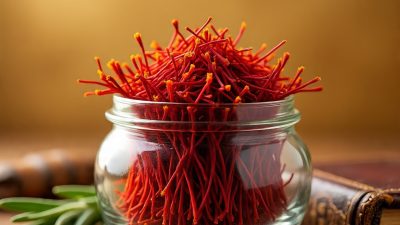If you’re looking for a simple superfood to elevate your daily diet, quinoa should be at the top of your list. This ancient seed has gained worldwide popularity for a reason. Packed with protein, fibre, and vital nutrients, quinoa is a versatile and naturally gluten-free food with extraordinary health benefits.
In this article, we’ll explore the complete nutrition facts, proven quinoa health benefits, and why adding just a cup a day can transform your well-being.
Contents
- 1 What is Quinoa, Exactly?
- 2 Quinoa Nutrition Facts (Per 1 Cup Cooked)
- 3 Top 10 Quinoa Health Benefits
- 4 Why You Should Eat Quinoa Daily
- 5 Easy Ways to Add Quinoa to Your Meals
- 6 Quinoa Safety Tips and Precautions
- 7 Final Thoughts: Is Quinoa Worth the Hype?
- 8 Want to Try Quinoa Today? Here’s a Simple Recipe:
- 9 FAQ
What is Quinoa, Exactly?
Though commonly referred to as a grain, quinoa (pronounced keen-wah) is technically a seed from the Chenopodium quinoa plant, native to the Andean region of South America. Cultivated for over 5,000 years, quinoa was once known as the “mother of all grains” by the Incas.
Unlike other plant-based foods, quinoa is a complete protein, meaning it contains all nine essential amino acids your body needs. It’s also rich in antioxidants, fibre, vitamins, and minerals, making it a top pick for anyone looking to eat healthier.
Quinoa Nutrition Facts (Per 1 Cup Cooked)
Here’s a breakdown of what 1 cup (185 grams) of cooked quinoa provides:
| Nutrient | Amount |
|---|---|
| Calories | 222 |
| Protein | 8.1g |
| Carbohydrates | 39g |
| Dietary Fibre | 5.2g |
| Fat | 3.6g |
| Magnesium | 30% DV |
| Manganese | 58% DV |
| Phosphorus | 28% DV |
| Folate | 19% DV |
| Iron | 15% DV |
| Zinc | 13% DV |
| Potassium | 9% DV |
Quinoa is also gluten-free, low on the glycaemic index, and free from cholesterol or added sugars.
Top 10 Quinoa Health Benefits
Let’s dive into the reasons why quinoa is considered one of the best superfoods you can eat daily:
1. Complete Source of Plant-Based Protein
Most grains lack certain essential amino acids, but quinoa contains all nine, making it a perfect protein option for vegetarians and vegans. With over 8 grams of protein per cooked cup, quinoa supports muscle repair, growth, and satiety.
2. High in Fibre for Digestive Health
Quinoa is rich in dietary fibre, especially insoluble fibre, which supports healthy digestion, improves regularity, and helps maintain a healthy gut microbiome. Fibre also helps reduce bloating and may support natural weight loss.
3. Supports Heart Health
The healthy fats, fibre, magnesium, and antioxidant profile of quinoa all work together to reduce LDL (bad) cholesterol, manage blood pressure, and support a strong cardiovascular system.
4. Rich in Antioxidants
Quinoa is loaded with flavonoids like quercetin and kaempferol, which have powerful anti-inflammatory and antioxidant effects. These compounds help fight free radicals, reduce inflammation, and may lower your risk of chronic diseases.
5. Gluten-Free and Ideal for Celiac or Gluten Sensitivity
Since quinoa is naturally gluten-free, it’s a safe and nutritious grain alternative for those with celiac disease or non-celiac gluten sensitivity. It’s also less processed than many gluten-free substitutes like rice flour or potato starch.
6. Balances Blood Sugar Levels
Quinoa has a low glycaemic index of around 53, meaning it won’t spike your blood sugar levels like white rice or pasta. The fibre and protein also help regulate insulin and glucose response, making it suitable for diabetics.
7. Boosts Energy and Brain Function
Thanks to its B-vitamins (especially B1, B2, and B6), iron, and magnesium, quinoa can boost your energy levels, improve focus, and support better brain function—especially when consumed during the day.
8. Supports Healthy Metabolism
Quinoa’s mix of protein, iron, and magnesium supports metabolic functions including fat-burning, oxygen transport, and muscle performance—key for anyone looking to manage weight or improve fitness.
9. Promotes Satiety and May Help With Weight Loss
Eating quinoa helps you feel full longer, thanks to its fibre and protein content. This can naturally reduce your appetite, lower your calorie intake, and help with weight loss when combined with a balanced diet.
10. Supports Bone Health
With a good dose of magnesium, phosphorus, and manganese, quinoa helps keep bones strong and dense—especially important for women, older adults, and athletes.
Why You Should Eat Quinoa Daily
Now that we’ve looked at its impressive health benefits, here’s why you may want to include quinoa in your daily diet:
- It’s easy to prepare and meal-prep friendly.
- Pairs well with breakfast, lunch, or dinner.
- Serves as a healthier substitute for rice, pasta, or cereal.
- Improves nutrient density of meals without much effort.
- Keeps you full and energized throughout the day
Whether you’re vegetarian, gluten-free, low-sugar, or just aiming to eat clean—quinoa fits nearly every dietary lifestyle.
Easy Ways to Add Quinoa to Your Meals
If you’re new to cooking with quinoa, here are simple and tasty ways to incorporate it into your meals:
1. Quinoa Breakfast Bowl
- Cooked quinoa + almond milk + berries + chia seeds + cinnamon
A protein-packed way to start your day.
2. Quinoa Salad
- Toss quinoa with cherry tomatoes, cucumbers, feta, olive oil, and lemon
Great for lunches or potlucks.
3. Quinoa Veggie Stir-Fry
- Use quinoa as a base instead of rice, top with sautéed veggies and tofu
Loaded with fibre and flavour.
4. Quinoa Wrap Filling
- Mix with black beans, avocado, lime, and spices for a satisfying wrap
A balanced, plant-based lunch option.
5. Quinoa in Soups or Chili
- Stir into soups or stews as a thickener and protein booster
Adds texture and nutrition without overpowering flavours.
Quinoa Safety Tips and Precautions
While quinoa is safe and beneficial for most people, here are a few things to keep in mind:
Rinse Before Cooking
Quinoa seeds are coated with saponins, a natural compound that can taste bitter or cause digestive issues. Rinse well under cold water before cooking to remove them.
Watch Portion Sizes
Though healthy, quinoa is calorie-dense. Stick to ½ to 1 cup cooked per serving to avoid accidental overeating.
Allergies Are Rare, But Possible
Very few people are allergic to quinoa, but symptoms like stomach pain or rashes could signal an intolerance. Start slow if it’s your first time trying it.
Final Thoughts: Is Quinoa Worth the Hype?
Absolutely.
Quinoa is not just trendy—it’s a true nutritional powerhouse that supports nearly every system in your body, from digestion and heart health to energy and metabolism.
By making quinoa a regular part of your diet, you’ll enjoy:
- More energy and mental focus
- Improved digestion and gut health
- Enhanced weight management
- Stronger immunity and bones
Simple to prepare, versatile in meals, and packed with nutrients—quinoa is one superfood that deserves a daily spot on your plate.
Want to Try Quinoa Today? Here’s a Simple Recipe:
Quick Lemon Herb Quinoa
Ingredients:
- 1 cup quinoa (rinsed)
- 2 cups water or veggie broth
- 1 tbsp olive oil
- Juice of 1 lemon
- 2 tbsp chopped parsley
- Salt & pepper to taste
Instructions:
- Boil quinoa in water or broth.
- Simmer for 15 minutes covered.
- Fluff, then stir in oil, lemon juice, herbs, salt & pepper.
Enjoy warm or chilled!
FAQ
What is quinoa and why is it considered a superfood?
Quinoa is a gluten-free, high-protein whole grain that contains all nine essential amino acids. It’s rich in fibre, magnesium, iron, antioxidants, and B vitamins—making it a complete plant-based protein and a powerful superfood.
What are the main health benefits of eating quinoa daily?
Eating quinoa daily may support weight loss, improve heart health, regulate blood sugar levels, boost digestion, and provide long-lasting energy. Its high nutrient density also supports muscle repair and immune function.
Is quinoa good for weight loss?
Yes, quinoa is low in calories but high in protein and fibre, which can help you feel fuller longer and reduce overall calorie intake—supporting weight loss naturally.
Can people with gluten intolerance eat quinoa?
Absolutely. Quinoa is naturally gluten-free, making it an excellent grain substitute for people with celiac disease or gluten sensitivity.
How much quinoa should I eat daily for health benefits?
One cup of cooked quinoa per day is a healthy portion for most adults. It provides around 8 grams of protein, 5 grams of fibre, and a broad range of essential vitamins and minerals.
How can I incorporate quinoa into my daily meals?
You can enjoy quinoa in salads, breakfast bowls, soups, stir-fries, or as a side dish. It can even replace rice or pasta in most recipes.
Are there any side effects of eating quinoa every day?
While quinoa is safe for most people, it contains saponins, which can cause mild stomach irritation if not rinsed properly. Always rinse quinoa thoroughly before cooking to reduce this risk.


